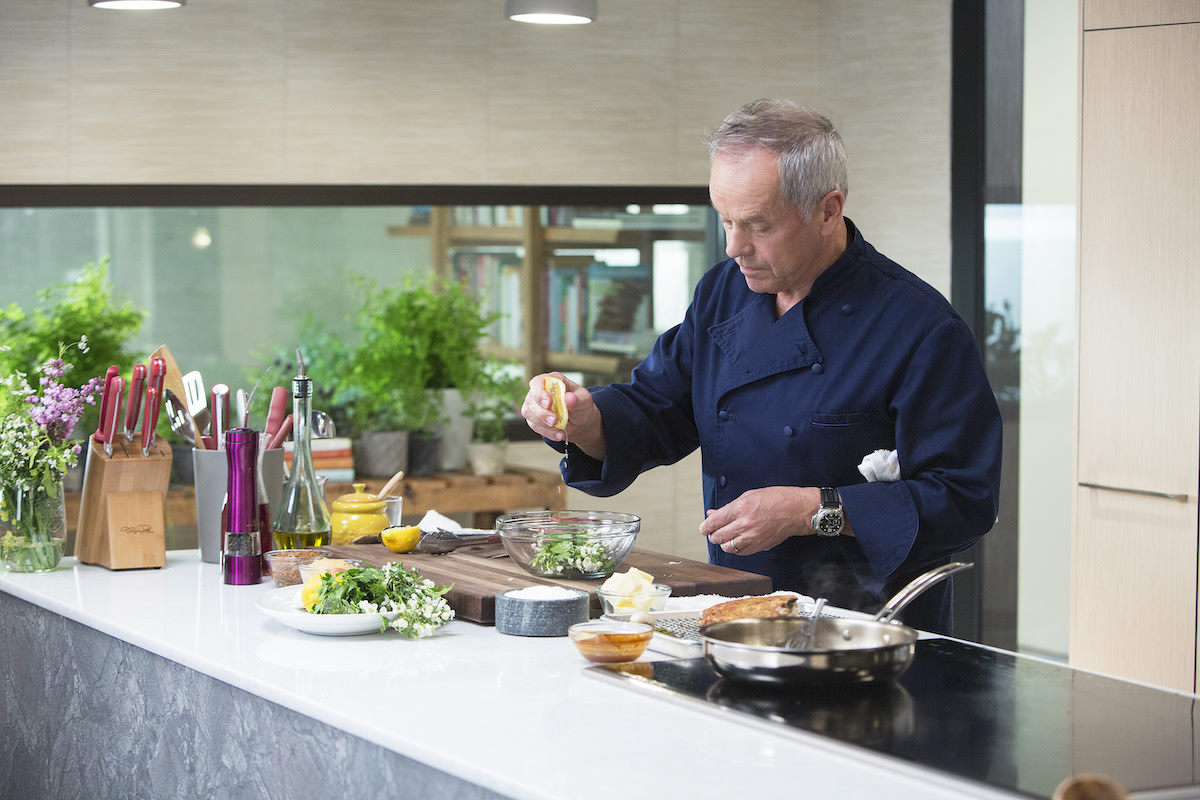Wolfgang Puck’s Tips for Seasoning Food
Written by MasterClass
Last updated: Oct 13, 2022 • 3 min read
Seasonings enhance the flavor of dishes. Learn Wolfgang Puck’s approach to tasting and seasoning foods to boost flavor.
Learn From the Best
Who Is Wolfgang Puck?
Born in Austria, Wolfgang Puck is a James Beard Foundation Award–winning restaurateur and one of the world’s most successful chefs. After studying in Europe, Wolfgang moved to Los Angeles in his twenties, where he became the chef and part owner of Ma Maison in Los Angeles, California. From there, Wolfgang published his first cookbook and opened his first restaurant, Spago, to wide acclaim.
Starting on the Sunset Strip in 1982, Spago relocated fifteen years later to Beverly Hills. Wolfgang has helped popularize California nouvelle, a modern form of California cuisine, which Wolfgang would expand upon in his subsequent ventures by adding a European flair to California staples.
What Is Seasoning?
Seasoning is the salts, spices, and herbs cooks use to enhance a food’s flavor. Seasonings can be savory, sweet, acidic, or bitter. Cooks can add seasonings when braising, roasting, sautéing, pickling, and even baking desserts to create more flavorful and memorable dishes. Cooks can use pre-ground spices like chili powder, peppercorns, cumin, paprika, and cayenne, or grind whole spices. Fresh herbs like oregano, chopped chives, or torn fennel can season soups and stews while cooking. Combining spices to create a pre-set spice mix can expedite the cooking process and be an excellent way to experiment with flavor combinations.
Why Is Seasoning Important?
Seasoning is essential because it enlivens meals, promotes innovation in cooking, and can transform the flavor of a dish. For example, a simple stir-fry dish may feature some soy sauce, but preparing a marinade with lemon juice, garlic powder, black pepper, ginger, hot pepper flakes, and dried herbs can make it a more dynamic dish.
5 Seasoning Tips From Wolfgang Puck
Celebrity chef Wolfgang Puck shares some tips about how to get the most out of your seasoning.
- 1. Cold foods may require more seasonings than hot ones. “The palate really receives the flavors of cold food much slower and not as strongly than when you serve, for example, a hot bowl of soup,” Wolfgang shares. “If it’s too spicy or too salty, you will taste it right away. So cold food should be seasoned a little heavier than hot food. That’s one of the principles in cooking.”
- 2. Different salts can have different functions. Salt plays a vital role in seasoning food but comes in many unique kinds. “When I started cooking, we had one kind of salt,” Wolfgang says. “Now, you have so many different salts, even smoked salts, for example. If you want to roast or barbecue something, put a little smoked salt on it. What I use all the time is great sea salt or fleur de sel. I never use iodized salt because iodized salt is not good for you and has no flavor. Good salt has a lot of flavor.”
- 3. Experiment with your use of seasoning. Home cooks can use a single seasoning in several different ways. Take ginger. Wolfgang says: “You can grate it; you can slice it; you can pickle it. One of my favorite ingredients is ginger. Fresh ginger is easy to find in any supermarket today. It has so much fragrance.” Try exploring different uses of ginger in various recipes to see how it can uplift everything from a ginger salad dressing to ginger tea to ginger beer cocktails.
- 4. Season a dish gradually. Cooking is a process, one that needs your sense of smell and taste every step of the way. “Training your palate to figure out what you like, the way you like it—you have to go step-by-step,” Wolfgang says. “Don’t go too fast. Don’t do [what] many people [do and] just throw salt in it, pepper in it, without tasting. So, tasting is always really important.” You can always add more salt, so there is no need to go overboard with the first pinch.
- 5. Toast your ground spices for enhanced flavor. Wolfgang shares a pro tip about getting more from your seasonings, a practice he employs in his award-winning restaurants’ kitchens: “If you can, toast your peppercorns a little bit in the oven to release a little bit of the oil, and they will be even more fragrant. We do that with all of our spices. If it's cumin, coriander seed: We toast them, then they have more flavor because they release their oil.”
Build Your Culinary Empire
After developing your palate and mastering your kitchen skills, learning about the culinary industry's business side is essential. Discover Wolfgang Puck’s approach to seasoning food, preparing sauces, opening a restaurant, and more when you sign up for the MasterClass Annual Membership.
